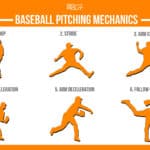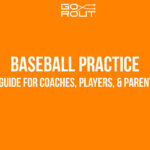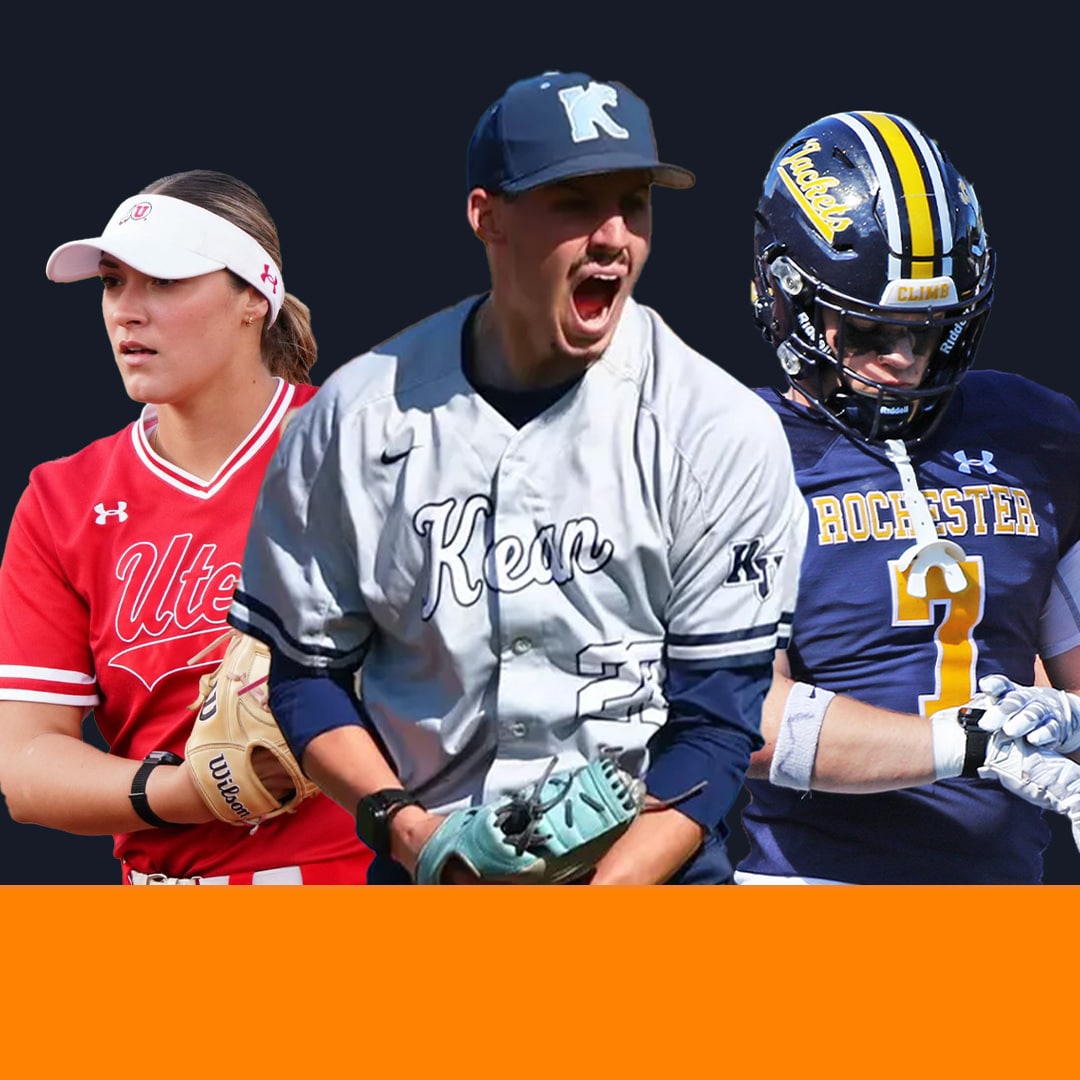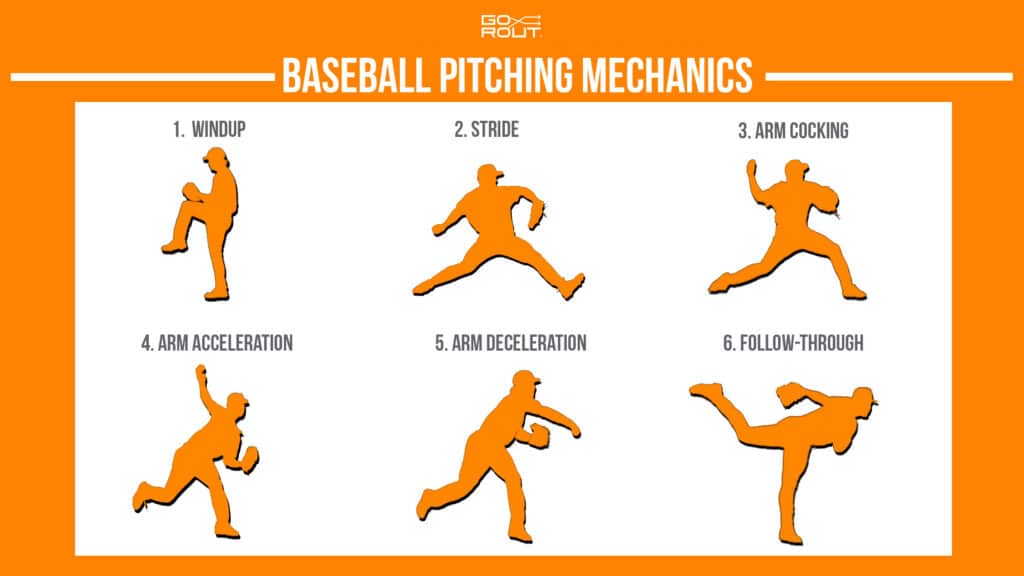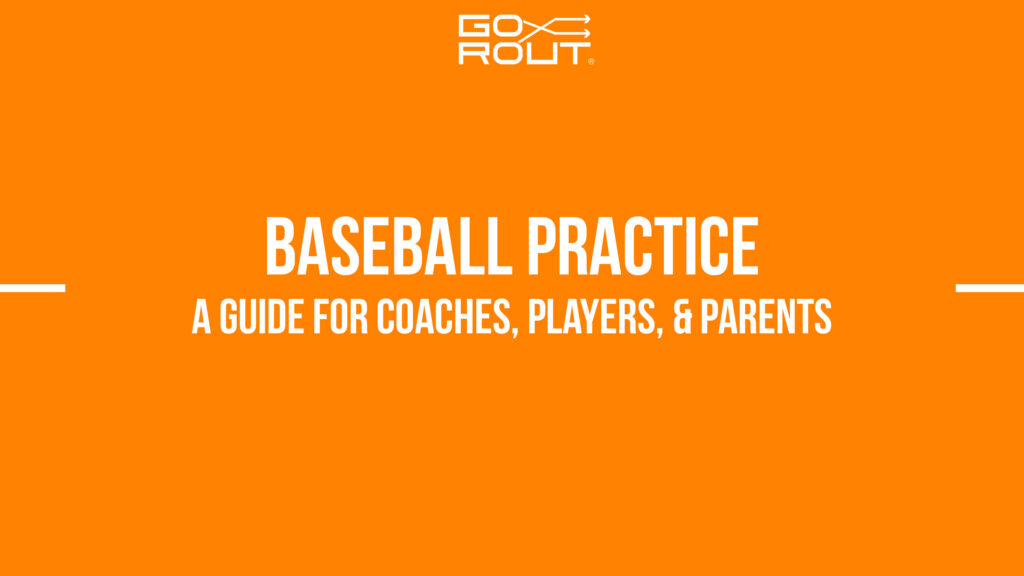Football Penalties: Understanding the Rules of the Game
Reading Time: 10 minutes
Reading Time: 10 minutes
Football penalties such as offsides, holding, and pass interference can significantly disrupt a team’s momentum and alter the outcome of a game.
Each carries consequences that affect yardage and possession, underscoring the importance of rule awareness for teams to win games.
In this article, we will discuss the most common football penalties and offer tips on how to avoid them.
The Importance of Understanding Football Penalties
Understanding football penalties can make or break a team’s chances of winning a game. It’s important to teach players how to maintain discipline and execute plays correctly with proper penalty enforcement.
Learning how to coach football involves understanding each penalty and its potential impact on your team.
Coaches should educate their players about all penalties and especially those most commonly called; offensive holding, a false start and pass interference for example. Players should also be aware of how many yards are at stake when each penalty is flagged.
Categories of Football Penalties
Understanding the categories of football penalties helps players, coaches and fans appreciate the rules and the impact of violations on the game. The main categories of football penalties include offensive team penalties, defensive player fouls, special teams errors and personal fouls.
Common Offensive Penalties
Some of the most common offensive football penalties are illegal formation, false start and holding.
False start
When an offensive player illegally moves after lining up but before the ball is snapped, a false start is called and a five-yard penalty is assessed against the offense. It includes any abrupt or prohibited motion that simulates the start of the play – like an offensive lineman moving their hand or a receiver taking a step. A false start disrupts the game flow and costs the offending team yardage.
Holding
Football’s most common offensive penalty occurs when a player uses their hands or arms to illegally restrain a player who does not have possession of the ball. It is a 10-yard penalty from the line of scrimmage. Holding prevents an offensive lineman or blocker from hooking, pulling, or dragging down defensive players.
Illegal formation
The NCAA and NFL rulebooks state that the offensive line must have seven players and an eligible receiver on both sides of the line of scrimmage. To prevent an illegal formation, each player between receivers must be an ineligible receiver.
Each offensive player and eligible receiver has to be in bounds. If the offensive linemen or any offensive players break these rules, it is considered an illegal formation and a five-yard penalty.
Delay of game
This is a five-yard penalty where the referee blows their whistle because the offense doesn’t snap the ball before the play clock runs out. The game official crosses their arms at their chest and their palms facing down to signal a delay of the game.
Common Defensive Penalties
Defensive football penalties include flags for defensive pass interference, roughing the passer and illegal use of hands. When a defensive player commits a foul, it costs their team penalty yardage, bringing the other team closer to the end zone.
Offsides
Offside is called when a defensive player is lined up across the line of scrimmage when the ball is snapped. It is not a dead ball. Offside penalties typically result in a “free play” because there is no risk involved with a quarterback taking a deep shot. Should the QB recognize offsides, get the ball snapped, and throw an interception, the coach can accept the penalty and receive the penalty yards. If the pass is completed, the penalty can be declined and the result of the play will stand. The penalty for offsides is five yards and a replaying of the down.
Encroachment
Similar to offsides, an encroachment penalty is called when a defensive player crosses over into the neutral zone. The difference between the two is that contact with an opposing player is required for encroachment to be called. Further, this is a dead ball penalty so there is no “free play.” Encroachment is another five-yard penalty and results in a replay of the down.
Defensive holding
A defensive holding foul occurs when a defensive player tackles or holds any member of the opposing team that is not the ball carrier. It is a five-yard distance penalty and an automatic first down for the offense.
Pass interference
Pass interference is called when a defensive player illegally uses their hands to prevent an eligible receiver from catching a forward pass. This penalty limits the amount of contact that a defensive back can make with a pass catcher before the ball touches the intended receiver’s hands.
In the NFL and CFL, the penalty is assessed at the spot of the foul and results in an automatic first down. The ball will be spotted at the one-yard line if the foul occurs inside the endzone (half the distance to the goal if the line of scrimmage was inside the two-yard line). In college, pass interference results in an automatic first down and is assessed at the spot of the foul, up to 15 yards from the previous spot.
Roughing the passer
One of the most severe defensive penalties is the 15-yard penalty and automatic first down for roughing the passer. It happens when a defensive player makes prohibited contact with the opposing quarterback when they are either in the process of throwing or after they have thrown a forward pass.
Roughing the passer calls have become somewhat controversial in recent years as football rulebooks have been edited to emphasize player safety. Since the quarterback is deemed defenseless while behind the line of scrimmage, they are protected from a wide range of contact from defenders.
Illegal use of hands
Illegal hand use involves a defensive player putting their hands to prohibited use by grabbing the facemask of the opposing player involved in a block. It results in a loss of five yards and an automatic first down.
Special Teams Penalties
Special team football penalties include an illegal block in the back and kicking team penalties. Some of them, like an illegal crackback block, are less common than the aforementioned offensive and defensive penalties. They most often affect a team’s positioning to start a drive after a kickoff or punt.
Illegal block in the back
When a player on the receiving team blocks a member of the kicking team from behind there is a ten-yard infraction. An illegal crackback block is when a player comes from more than two yards away and makes contact below the waist or from behind.
Running into the kicker
A player on the receiving team runs into the kicker, connecting with their kicking foot or another part of their body without first making contact with the football. The kicking team gains five yards and replays the down. If the first down marker is within five yards, the penalty would result in a first down.
Kick-catch interference
The interference happens when a kicking team member contacts the receiver or causes an ineligible player downfield to contact them before they are able to catch the ball. The kicking team gives up 15 yards when this foul occurs.
Personal Fouls
A personal foul is a football penalty that includes unsportsmanlike conduct, unnecessary roughness or targeting. It occurs when a team aggressively behaves against the opposing team. Two personal fouls on the same player will result in their ejection from the game.
Unnecessary roughness
Unnecessary roughness is a safety-related personal foul in football. It occurs when a player is deemed to have used excessive force to make a tackle, makes an illegal tackle (i.e. helmet-to-helmet contact) or hits a player who is already out of bounds.
It results in an automatic first down and a 15-yard penalty against the offending team.
Unsportsmanlike conduct
Unsportsmanlike conduct includes taunting and excessive celebrations, or abusing a game official or a coach either verbally or physically. The personal foul of unsportsmanlike conduct results in 15-yard penalties and can lead to fines or suspension.
Targeting
Targeting is a controversial personal foul in college football. The rule is defined as, “when a player makes forcible contact with a defenseless opponent’s head or neck using their helmet, hand, fist, elbow, shoulder, or forearm.”
This penalty results in a 15-yard fine and an automatic first down. In the NCAA, players called for targeting are immediately ejected from the game. If the penalty is called in the second half of a game, the player must also sit out for the first half of their next game.
Strategies for Reducing Football Penalties
Multiple fouls can disrupt game flow and result in significant yardage losses. Practical strategies for minimizing penalties include discipline, education and physical conditioning.
A culture of accountability and sportsmanship improves a team’s performance and helps avoid violations. Here are some key strategies to help your team reduce football penalties this season.
Emphasize discipline and focus
Discipline and focus start with the head coach integrating these values into the football practice plan.
A culture of accountability and attention to detail helps players become more aware of their actions on the field. Coaches can implement football drills that simulate high-pressure situations so players practice maintaining composure.
Regularly reviewing game footage to identify and correct mistakes reinforces discipline and reduces the likelihood of repeated penalties in the future.
Educate players on the rules
The head coach is responsible for ensuring players understand the rules and the consequences of violations.
It’s important to dedicate specific time to reviewing critical rules and discussing recent penalties observed in games. Players should know who is an eligible and ineligible receiver, what constitutes an illegal forward pass, what illegal equipment is, and what alignments and contact are deemed illegal.
Using quizzes can help players memorize the rules, leading to fewer penalties during the season.
Practice proper technique
Incorporating drills into a practice routine helps players develop the skills to avoid penalties such as holding, illegal blocks and roughing. Drills should focus on correct tackling, blocking and pass coverage techniques.
For example, 7 on 7 football scrimmages let players practice these techniques in a game-like setting without the full contact of a standard game.
Simulate game situations
Coaches should create scenarios replicating actual game scenarios, such as kickoff and punts or handling high-pressure fourth-down plays.
These simulations help players become accustomed to game speed and pressure. They also practice maintaining composure and sticking to the rules.
Repetition of game-speed scenarios in practice helps to enhance decision-making and technique, enabling teams to maintain progress.
Encourage communication
An advanced coach-to-player communication system like GoRout allows players to receive clear and timely instructions to reduce confusion and mistakes on the field.
Effective communication helps players understand their roles and the plays being called. It decreases the likelihood of alignment errors and miscommunication between reps.
Perfecting communication during drills and scrimmages keeps players coordinated and focused for a more disciplined and penalty-free performance during games.
Implement accountability measures
Assign responsibility to team captains to ensure players are held accountable for their actions on the field.
A team captain reinforces discipline and focus among teammates by addressing issues on the field in real time.
Create a culture where players take ownership of their behavior, supported by regular reviews and discussions led by the captains and coaches.
Focus on conditioning
Proper football conditioning keeps football players at peak physical performance throughout a season. Conditioning reduces mental and physical fatigue that can lead to mistakes.
Well-conditioned players are less likely to commit penalties on game day as they are able to focus and execute their role through all four quarters.
Including conditioning drills in the training regimen keeps athletes sharp, focused and disciplined for fewer football penalties.
Reinforce positive behavior
Recognizing and rewarding players who consistently demonstrate good sportsmanship and commitment to the rules encourages others to follow.
Highlight instances where players avoid penalties and make smart, legal plays to foster a team culture that values discipline.
Addressing unsportsmanlike conduct promptly and positively reinforces maintaining composure and respect on the field.
How to Avoid Football Penalties with GoRout
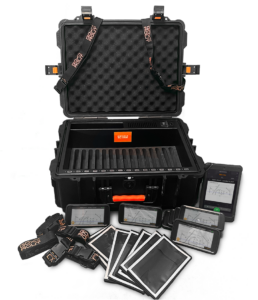
GoRout is an advanced football play calling system that streamlines on-field communication between coaches and players, enabling more efficient practice sessions.
However, you can also use this sports coaching technology during games to avoid football penalties.
GoRout transmits football coaches’ play cards safely and securely from the coaches’ mobile app to each player on the field. Players receive instructions on their football practice devices, review assignments and execute plays accordingly.
This rapid transmission and clear communication reduces friction, misunderstanding and errors that can lead to penalties.
Strengthen your team coordination and performance with GoRout and achieve an average of 2.5 reps per minute! GoRout testimonials come from hundreds of satisfied coaches who rely on GoRout to boost practice efficiency, avoid football penalties and increase team confidence.
Web scripting app

GoRout makes creating and organizing football practice scripts easy and efficient. With our platform, you can prepare for football practice and games with just a few clicks.
Our web scripting app works with any card drawing software. It allows you to add, edit, copy, and reorder scripts/cards, quickly organize periods, and move plays between periods.
This system simplifies the entire process, saving you valuable time.
Coaches practice app
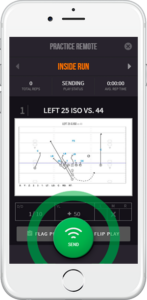
Our on-field football coaching gear, powered by GoRout STEEL™, helps you start and end practices, organize practice scripts and send plays to players using a custom on-field remote.
GoRout creates seamless communication with each player through on-field formation flipping, one-tap play flagging and live card editing.
On-field player device
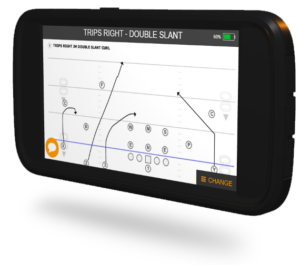
GoRout football wristbands can withstand long, demanding football practices. You can use them immediately without setup or WiFi connectivity.
Coaches use GoRout equipment to distribute play calls to players by selecting practice groups. It keeps players aligned and prepared. The device provides play drawings and position-specific messaging directly to each team member.
Conclusion
Football penalties maintain fair play on the field. Coaches must know the ins and outs of each penalty and teach players about their impact on a game’s outcome.
Wearable technology in sports like GoRout reduces penalties through improved communication, increased practice efficiency and secure play call transmission to each player on the field.
Get a quote from GoRout to see how our advanced practice system can improve your team dynamic this season and help you win more games.
FAQs about Football Penalties
What type of football penalties are there?
Football penalties include offensive, defensive, special teams and personal fouls. There was once a penalty for excessive crowd noise in the NFL, but it has since been eliminated.
How many penalties are there in football?
There are around fifty different American football penalties. Some include an illegal forward pass, illegal shift, facemask, offsides, unsportsmanlike conduct, neutral zone infraction, kick-catching interference, fair catch interference, illegal touching and an illegal block in the back.
What are 10-yard penalties in football?
Ten-yard penalties are infractions by a team member that cost the entire football team ten yards of their field gain. The most common 10-yard penalty in football is holding.
What are the most common penalties in the NFL?
The most common penalties in the NFL are holding and pass interference. Together, they make up more than one-third of all penalties.

